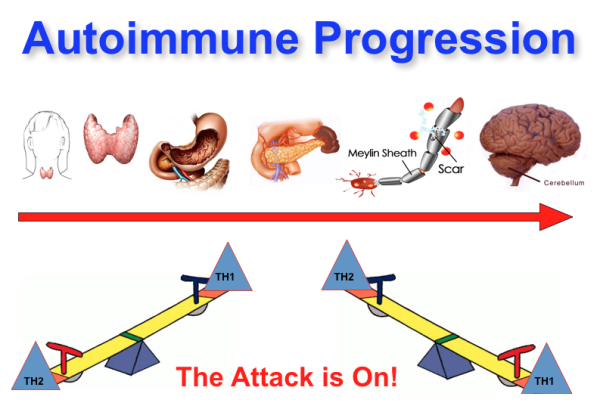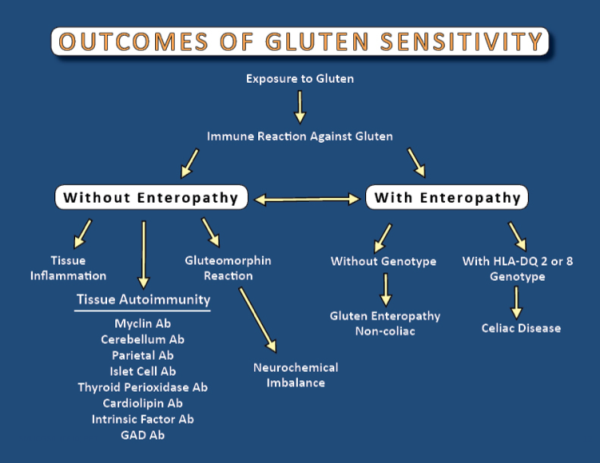Having undiagnosed autoimmune thyroid or Hashimoto’s Thyroiditis is one of the key reasons why it’s common for women and men to continue suffering with stubborn thyroid problems. Auto Immune Thyroid or Hashimoto's Thyroiditis is the number one cause of hypothyroid symptoms in the United States.
From the Desk of Dr. Karl R.O.S. Johnson, DC.....
Dr. Karl R.O.S. Johnson, DC
Recent Posts
Why Does Autoimmune Thyroid Cause Stubborn Hypothyroid Symptoms?
Posted by Dr. Karl R.O.S. Johnson, DC on Sun, Dec 02, 2012
Topics: Hypothyroidism, autoimmune, Hashimoto's, thyroid, autoimmune thyroid, Immune System, TH1, TH2
Why Do So Many Women On Thyroid HRT Still Suffer With Hypothyroid Symptoms-Part One
Posted by Dr. Karl R.O.S. Johnson, DC on Fri, Nov 23, 2012
Do you continue to suffer with low thyroid symptoms even after taking replacement hormones for months or years? Do you continue to suffer with any of these thyroid symptoms?
- Tired, Sluggish
- Can't lose weight even with exercise
- Feel cold in hands, feet, or all over
- Require excessive amounts of sleep to function properly
- Increase in weight gain even with low-calorie diet
- Gain weight easily
- Difficult, infrequent bowel movements
- Depression, lack of motivation
- Morning headaches that wear off as the day progresses
- Outer third of the eyebrow thins
- Thinning of the hair on scalp, face or genitals or excessive falling hair
- Dryness of skin and/or scalp
- Mental sluggishness
- Nervous and emotional
- Insomnia
- Night sweats
- Infertility
- Hypoglycemia / Low Blood Sugar
- Constipation
- Problems with Balance and Coordination
Topics: Hypothyroidism, autoimmune, Hashimoto's, thyroid, Hypothyroidism Symptoms
GF-CF-SF Thanksgiving And Holiday Recipes You Will Love!
Posted by Dr. Karl R.O.S. Johnson, DC on Thu, Nov 15, 2012
Topics: autoimmune, gluten free, D'Adamo, Blood Type, casein-free, soy-free, Thanksgiving
Food Breakdown -- The Source Of Many Autoimmune Problems
Posted by Dr. Karl R.O.S. Johnson, DC on Sun, Oct 14, 2012
When we eat "dead" food, that is food lacking live enzymes, the result is incomplete digestion and breakdown.
Topics: autoimmune, fibromyalgia, Diabetes, Leaky Gut, Food Enzymes, Cooked Food, Immune System, "Dead" Food
New Treatment Methods Offer Blessed Relief for Fibromyalgia Sufferers
Posted by Dr. Karl R.O.S. Johnson, DC on Sun, Sep 16, 2012
I've got good news for fibromyalgia sufferers (and for people with chronic dizziness, migraines, insomnia, restless leg syndrome, sciatica, shoulder and arm pain)!
Always on the search for “tools” to help patients who aren’t expressing health in an optimal way I discovered an approach that provides miraculous results for many. Several years ago, when I went to a conference in Atlanta Georgia I learned about combining the knowledge I have been using for years with functional neurology.
Topics: fibromyalgia, fatigue, brain fog, depression, Anxiety, IBS, Johnson Brain-Based Therapy
When Is A Food Really Gluten Free? How Do I Reclaim My Life?
Posted by Dr. Karl R.O.S. Johnson, DC on Sun, Sep 09, 2012
When is the color blue, NOT the color blue? Of course, it's when the color is purple...or does purple contain some blue. One could debate about color gradation for the good part of an hour, if one had the time to ponder such things. I for one, do not have the time to do so, nor the desire. However, I have been asked many times by my patients what gluten free really means. Unfortunately, if you get on the internet, you will find this area of discussion quite confusing. The term gluten-free is generally used to indicate a supposed harmless level of gluten rather than a complete absence of gluten.[1] The exact level at which gluten is harmless is uncertain and controversial, however. Depending on what country you reside, gluten free has varying definitions and hence the regulations for labeling a food gluten free varies too.
Topics: autoimmune, Cyrex Labs, gluten free, fibromyalgia, ADD, ADHD, psoriasis, eczema, inflammation, low thyroid, vertigo
Natural Effective Research-Proven Help for ADD, ADHD and Poor Memory
Posted by Dr. Karl R.O.S. Johnson, DC on Tue, Sep 04, 2012
Do you know what it means if you can interact with your intellectual self? It means you can start controlling your own perceptions, your own thinking, and your own neurological processes, your own planning, sequencing, decision-making etc. So, why is it important to have these abilities? It is important to have these abilities because without them, we can develop disorders such as ADD and ADHD and poor memory. When someone cannot interact with their intellectual self, do they need help? Well, if they want help, they can and should get help. Therefore, we are glad to say that we have the safest option for you to defeat disorders such as ADD and ADHD.
Topics: ADD, ADHD, Johnson Brain-Based Therapy, Interactive Metronome, Poor Memory, IM, Motor Sequencing










